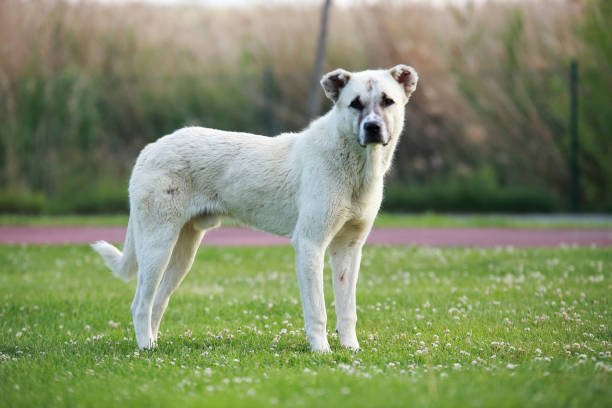Kangal Dogs: The Fearless Guardians

The Kangal dog, often referred to as the Turkish Kangal, is a breed renowned for its strength, loyalty, and protective instincts. Originating from the Sivas region of Turkey, these dogs have been bred for centuries to guard livestock, particularly sheep, from predators such as wolves, bears, and jackals. Known for their calm demeanor with their families and unmatched courage in the face of threats, Kangal dogs are prized for their unwavering loyalty and effectiveness as working dogs.
History and Origins
The Kangal dog is an ancient breed that has been closely associated with rural life in Turkey for centuries. They were originally bred by Turkish shepherds to protect their flocks from wild animals, and they have remained largely unchanged in appearance and temperament since their inception. The breed’s lineage is thought to be one of the purest among livestock guardian dogs, as it has been isolated in Turkey’s Anatolian region, free from crossbreeding with other dog types.
The Kangal dog holds cultural significance in Turkey, where it is considered a national treasure. It is often regarded as a symbol of strength and independence, reflecting the rugged, challenging terrain of its homeland.
Appearance
Kangal dogs are large, muscular, and powerful animals, designed for endurance and strength rather than speed. Their physical traits reflect their role as livestock guardians, combining strength with agility to fend off predators.
- Size:
Adult males typically weigh between 110 and 145 pounds (50–66 kg) and stand around 30 to 32 inches (76–81 cm) tall. Females are slightly smaller, weighing between 90 and 120 pounds (40–55 kg). - Coat and Color:
Kangal dogs have a short, dense double coat that protects them from harsh weather conditions. Their coat is usually a solid color, ranging from pale fawn to light tan, with a distinctive black mask on the face and black ears. - Tail and Ears:
Their tail is long and typically curls over their back, while their ears are medium-sized and drop downward. The breed has a robust frame and an overall strong, intimidating appearance.

Temperament and Personality
Kangal dogs are highly intelligent, independent, and possess a natural instinct to protect. However, they are also known for their calm and even-tempered nature when not facing a threat.
- Protective and Loyal:
As one of the most effective livestock guardian dogs, Kangal dogs are fearless when it comes to defending their family, flock, or territory. They are loyal to their owners and will stand between a threat and their charges without hesitation. - Gentle with Families:
Despite their large size and protective instincts, Kangals are gentle and affectionate with their families, including children. They are known for being good-natured and dependable, showing a calm disposition when they’re not on guard duty. - Independent Thinkers:
Kangal dogs are bred to work independently of human direction when guarding livestock, which means they are problem-solvers with a strong sense of autonomy. This also means that they require training and proper socialization from an early age to ensure they develop the right balance of obedience and independence. - Reserved with Strangers:
Kangal dogs are naturally suspicious of strangers, making them excellent guard dogs. They are not typically aggressive unless they perceive a threat, but their size and stature alone can act as a deterrent to intruders.
Training and Exercise Needs
Due to their intelligence and working background, Kangal dogs require proper training and consistent guidance. While they are not overly hyperactive, they do need sufficient physical exercise and mental stimulation to keep them satisfied.
- Training:
Early socialization is essential for Kangal puppies, as it helps them develop into well-adjusted adults. They respond well to training but can be stubborn due to their independent nature. Positive reinforcement methods work best, as harsh training tactics can lead to resistance. - Exercise:
Kangals are working dogs that need ample space to roam and exercise. They thrive in environments where they have a job to do, such as guarding livestock, but they can also be great pets if given enough physical activity and mental stimulation. - Role as Guardians:
Kangal dogs are primarily bred for guarding, so they excel in environments where they can perform this role. They are happiest when they have a purpose, whether that’s guarding a flock, home, or family.
Health and Lifespan
Kangal dogs are generally healthy and robust, but like all breeds, they can be prone to certain health conditions.
- Common Health Issues:
While Kangals are a relatively hardy breed, they may be susceptible to hip dysplasia, a condition common in large breeds. Regular vet check-ups and a healthy diet are essential to maintaining their well-being. - Lifespan:
Kangal dogs typically live between 12 and 15 years, which is relatively long for a dog of their size. Providing them with a healthy diet, regular exercise, and routine veterinary care can help ensure a long, happy life.
Kangal Dogs as Pets
While Kangals are primarily working dogs, they can make excellent pets for the right family. Their size, intelligence, and protective nature make them well-suited to homes with ample space and experienced dog owners who understand their needs.
- Good for Rural Living:
Kangals are ideal for rural settings where they can roam and guard livestock or large properties. Their natural instincts may make them less suited for small apartments or urban living. - Not for Inexperienced Owners:
Due to their size and independent nature, Kangal dogs are best suited for experienced dog owners who can provide proper training, socialization, and leadership.
